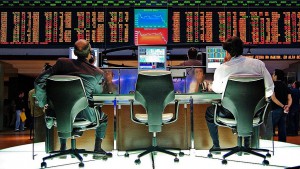In order to understand the forex market, you must first know the forex team that is involved in this market. This team can be characterized into three basic groups:

2. Traders non-commercial (large speculators)
3. Retail Traders (small speculators)
Commercial Traders – The Hedgers
Hedgers or traders are those who want to protect themselves against unexpected changes. Farmers or farmers who make the “hedge” (minimize) the risk of changing commodity prices are part of this group.
Banks or companies who are looking to protect themselves against sudden price changes on currency or other assets are also considered commercial traders.
A key feature of hedgers is that they are more optimistic on market funds and more pessimistic in the market tops.
What does that mean
Here’s a real example to illustrate:
A virus outbreak in the US turns people into zombies. The zombies are malicious, iphones are invaded and is introduced strange sounds inside.
It will be total chaos, as people were disoriented and helpless without their iphones functioning normally. It will have to stop soon, before the nation dispose of into oblivion.
The zombies are not held with guns and bullets. The only way to stop them is by cutting their heads.
Apple sees a “market need” and decides to build a private Samurai army to protect vulnerable users of iphones.
She needs to import Japanese samurai swords. Steve Jobs hired a Japanese samurai blacksmith who asks to be paid in Japanese yen when finished swords after three months.
Apple also knows that if the USD / JPY falls will end up paying more yen by swords.
In order to protect herself, or protect against currency exchange risk, the company buys futures fund JPY.
If the USD / JPY falls after three months, the gain of the company on the futures contract would offset the increased transaction costs to the blacksmith of Japanese swords.
On the other hand, if the USD / JPY rises after three months, the company’s loss on the futures contract would be offset by a reduction in the cost of your payment for samurai swords.
The Great Speculators
In contrast to hedgers, who are not intentionally focused on profits from commercial activities, speculators are in it for money and have no interest in owning the underlying asset.
Many speculators are known as assiduous followers of the trend, since they buy when the market is in an uptrend and sell when it is in downtrend. They keep adding their position until the price movement reverses.
Large speculators are also major players in the forex market, since hold huge bills.
As a result, their trading activities can cause a drastic move in the market. They usually follow moving averages and maintained their positions until the trend changes.
Small speculators
Small speculators, on the other hand, have smaller retail accounts. These consist of hedge funds and individual investors.
They are known to be anti-trend and are usually on the wrong side of the market. Because of this, they are usually less successful than hedgers and traders.
However, when they follow the trend, they tend to be highly concentrated in the tops or bottoms.
